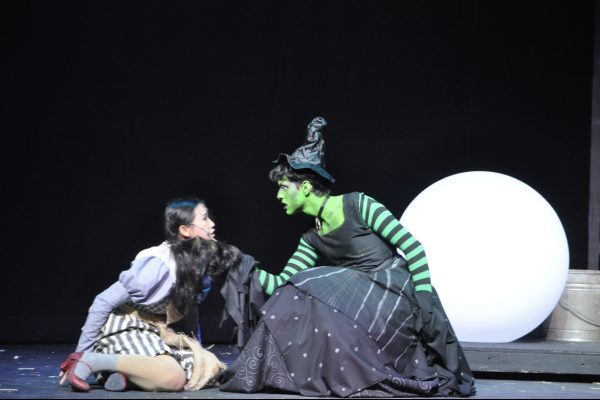Marking Evolution: The Weeknd’s New Chapter
Abel Tesfaye — known by his stage name, The Weeknd — started releasing music somewhat anonymously on YouTube in 2011 and quickly gained attention from indie music listeners. Since then his following has grown immensely and he currently has the most monthly listeners on Spotify of any artist in the world. His recent 14-track album, “After Hours,” gained over a billion streams on Spotify since its release March 20, representing the sixth installment in Tesfaye’s artistic evolution.
Tesfaye’s music always involved dark and unconventional topics set to a deep R&B style, but his past two albums seem to take a different approach to resolving struggle. Whereas some of his past music is somewhat shallow, Tesfaye seems to embrace his emotions toward the heartbreak he found himself feeling rather than seeking escape. For example, “My Dear Melancholy,” which came out March 30, 2018, is intensely emotional and reflective. Similarly, “After Hours” is a departure from the destructive, self-indulgent behaviors present in his past work. The intense, emotional nature of the music is reflected by the album art, which features Tesfaye beaten and bloody, his surroundings blurred behind him. This jarring image directly references the pain he endured, and his having to sit with it throughout the album.
“After Hours” speaks to an evolving and maturing Tesfaye, both in terms of his music style and lyrical content. In collaboration with producers including Illangelo, Max Martin, Oscar Holter, Metro Boomin and DaHeala, the album features a variety of production and writing styles. Some songs are reminiscent of the dark feel of his first album, “Trilogy” (“Alone Again,” “Snowchild,” “After Hours” and “Until I Bleed”). Others like “Blinding Lights” and “In Your Eyes” are more upbeat, exhibiting elements of retro, new wave music. The album is beautifully conscious in painting a picture of what went wrong and where Tesfaye’s experiences have brought him, each song revealing a new layer of the story.
Throughout the album, Tesfaye’s lyrics reflect his self-accountability for the end of a relationship, expressing frustration at the personal issues he’s faced (especially hedonism and being unable to deal with emotion, whether it’s his or his partner’s). He feels like he lost his soulmate but pleading hasn’t given him success in reviving his relationship, and as a result, he’s returning to his dangerous old habits.
The lead single “Heartless” acknowledges that Tesfaye’s overindulgence has kept him from learning to feel, making him cold and unemotional. This song expresses disappointment with himself, not self-praise as the music makes it seem. “In Your Eyes” attaches self-blame to the relationship’s failure, especially regarding his inability to deal with emotions shown in the following line: “You always try to hide the pain / I always look the other way / I’m blind, I’m blind.” “Save Your Tears” expresses a similar idea, though he begs his partner to reconnect in this lyric: “Girl, take me back ‘cause I wanna stay.”
Though Tesfaye has many ways in which he “runs away,” excessive drug use emerges as the topic most often referenced in his songs. On this album, “Faith” and “Blinding Lights” together tell the story of a return to drug usage after a year of sobriety. Though he takes drugs to fill his partner’s absence, he still longs for her.
This regret permeates in “Too Late,” where Tesfaye kicks himself for letting his partner go, asking her to accept him again. He goes so far as to claim that she still feels the same way about him in “Repeat After Me (Interlude)” even though she has moved on. The loss of this relationship affects him so strongly because he feels as if they’re soulmates and can’t deal with possibly having lost what was meant to be his destiny. His drive for success in a fast-paced world, as expressed in “Snowchild,” may serve to explain this inability to accept failure. In the title track “After Hours,” he admits that his life isn’t complete anymore and while living without her presence, he has entered his “darkest hours.” He desperately calls for her to return to him: “Where are you now that I need you the most? / I’ll treat you better than I did before / I’ll hold you down and not let you go.”
“After Hours” ends with “Until I Bleed Out,” the final breaking point. Tesfaye wishes he could just remove the things that give him extreme highs and lows, but, using the metaphor of bleeding out, he reveals that ripping these things out of his life would ruin him. The motivation behind the song could be a desire to improve his life, relieve his pain or punish himself, but it’s most likely a complex combination of them all. The song leaves Tesfaye in a paralyzing fear of the future, not knowing what to do with the situation he’s in. This uncertain end punctuates the honest nature of the album; Tesfaye is able to reach people because he doesn’t euphemize his experiences, and there’s a great deal of relatability and respectability in that.












